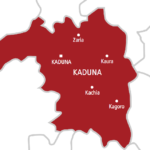The article by Suleiman A. Suleiman titled ‘Kaduna: Elrufai’s dying patient’ published on his back page column of Monday; January 24, 2022, is obviously not written to appraise the monumental infrastructural projects, which Mallam Nasir Ahmed El-Rufai of Kaduna State has embarked upon since his election as governor in 2015. Rather, it was written to poison the uncritical, feeble and politically biased minds about El-Rufai and his achievements. I cannot see how any fair-minded person, journalist, academic, or otherwise, will simply declare that the excellent roads and other beautiful infrastructures constructed in Kaduna, Zaria and Kafanchan are virtually a waste of resources! Rather, he calls for the construction of housing estates as panacea for igniting economic development or job creation. This is best described as economic logic turned upside down.
I write here as a person who has been living in Zaria since 1974 when I was admitted as an undergraduate student at Ahmadu Bello University, ABU, and also as someone who has been working at ABU since 1978 after completing my NYSC. Therefore, if you have known Zaria, the way I do, and have lived in it for about 50years, like myself, you will have no choice but to applaud the renewal it has gone through in recent times, carried out by Governor El-Rufai. It is in this regard that I have the following issues to raise with the write-up:
- Leaders reach common ground to save Nigeria
- Alukwu rescues point for Heartland in 1-1 draw with Gombe United
Suleiman was obviously not happy about President Buhari’s excitement after commissioning projects in Kaduna, Zaria and Kafanchan. This is his reaction to the president’s commendation of Governor El-Rufai which he (Suleiman) said did not know what President Buhari saw in Kaduna, or how he looked or with what background information he interpreted what he saw.
He claimed that 48 hours before the president’s visit, he was in Kaduna on an assignment and had gone round the city to observe, see and listen and learn for himself the realities on ground and did not take him long “to begin to have the impression that El-Rufai is simply killing the patient in the name of infrastructural development’’.
My question to Suleiman is how could someone, a journalist for that matter, who visited Kaduna just 48 hours before the commissioning of the projects expect to find workers on the site of completed projects, or even some of the ongoing projects, at that particular time? How could Suleiman conclude that few workers were employed during the construction when he did not go to check the projects at the time they were going on? I would like to inform him that when the rehabilitation of Hanwa Road in GRA Zaria was taking place, I did not see a single machine used in digging the drainage; our locals were employed to do this job and the machines came in only when they were fixing the drainage. Therefore, the claim that the constructions did not have a significant impact on the local economy is not based on factual evidence.
It looks like the objection of Suleiman to the “…massive road and other infrastructural projects completed or ongoing in Kaduna today” is based on his belief that “El-Rufai’s entire projects are simply no compensation for the social and economic damage his work has wrought on the city (Kaduna).” He justified this by saying that about 65 per cent of Nigeria’s economy is informal, statistics that are probably higher in the northern parts. Indeed, a World Bank report last year estimated that over 80 per cent of all employment in Nigeria is in the informal economy.
It is clear to me that Suleiman is trying to justify our continued economic backwardness by insisting that Kaduna State government should not aim at industrialisation but keep on focusing (even at this point of our economic development) on the informal sector rather than the formal sector. The fact that hawkers, roadside kiosks owners etc were displaced and dislodged in the process of reconstruction of roads seems to be the basis of his condemnation of the urban renewal projects. But such dislocation is the logical outcome of the process of changing the focus of the economy and that the affected people should make efforts to relocate to new areas.
Therefore, when we talk about economic development of society, we do not mix things up with sentiments, morality and low level politics.
To the credit of El-Rufai, he has attracted Olam, one of the biggest companies in the world that manufactures livestock, fish and poultry feeds, raises chicken and turkey as well as the manufacture of fertilizer for our farmers. Through this he has been able to create thousands of jobs in Kaduna State and beyond. Why is Suleiman neglecting this and hiding behind the protection of the informal sector to try to discredit the urban renewal efforts of El-Rufai?
The developmental prescriptions of Suleiman baffle me both from an economic and social point of view. He said the solution to urban overcrowding is not always expanded roads but mass housing and mass transportation, including robustly enforced traffic rules.
When I read the above, I became perplexed as to how the building of 50,000 housing units could substitute good urban roads, in a place like Kaduna, whose expanding economy is creating opportunities for private investment in the housing and other critical sectors of the economy. If the roads are left to continue to deteriorate, who will come to invest in a dilapidated, dusty, dirty and unattractive economic environment?
After I read your piece, I even started thinking that people like you, who live in Abuja, a city full of double-lane roads and other beautiful infrastructures, think that those of us living outside Abuja do not deserve to have a decent life! In the light of the above, if you really consider us in Kaduna State as “sick people”, I will say yes, we have found a physician, one who has excelled in urban renewal. Thanks to Governor Nasir El-Rufai of Kaduna State.
Alkasum Abba is of History Department, ABU and CEDDERT, Zaria

 Join Daily Trust WhatsApp Community For Quick Access To News and Happenings Around You.
Join Daily Trust WhatsApp Community For Quick Access To News and Happenings Around You.

